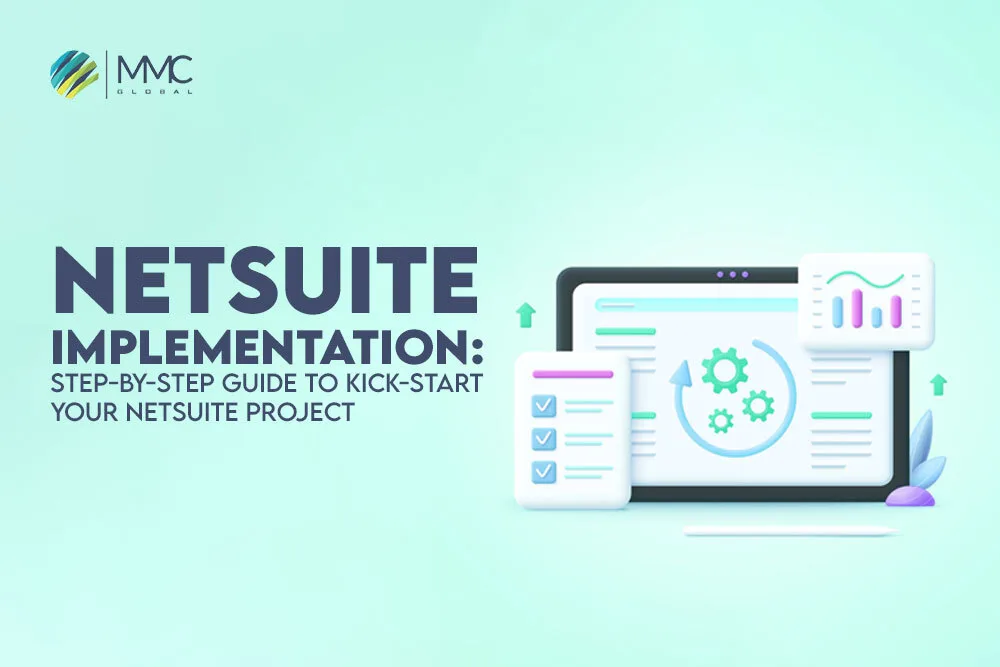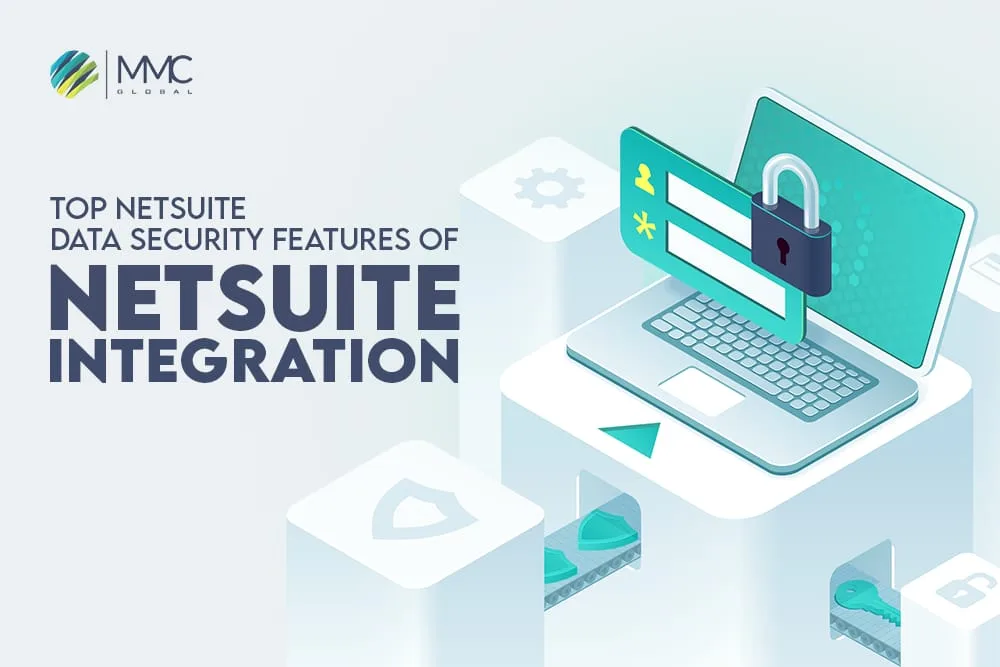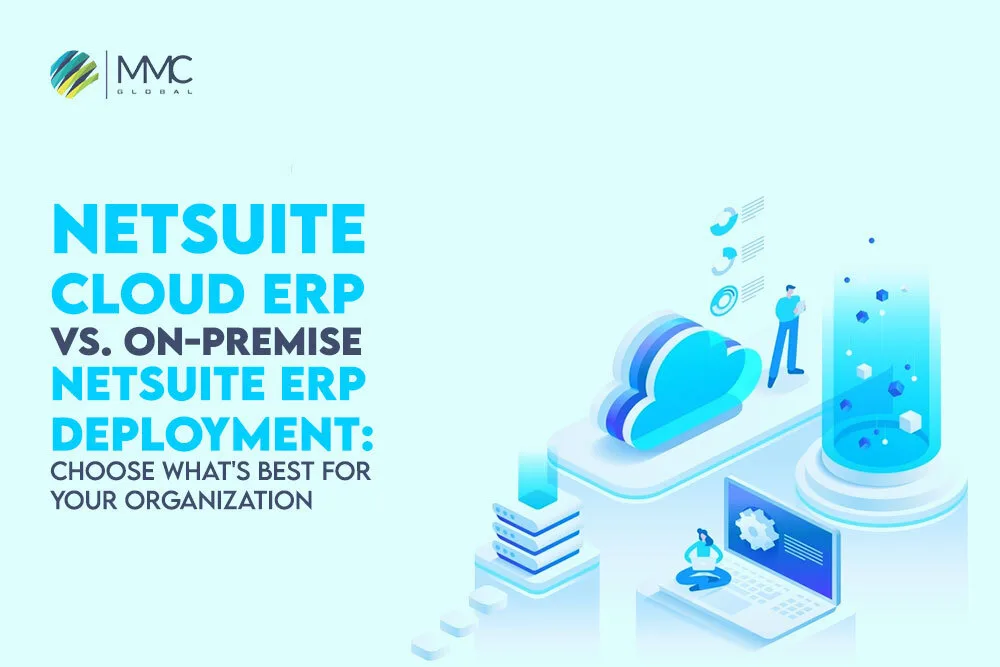When it comes to NetSuite implementation, it is most effective for cloud-based enterprise resource planning (ERP) solutions, and data migration is a critical component often overlooked. By migrating data accurately and efficiently to NetSuite, companies can fully reap the platform’s benefits.
NetSuite is a cloud-based ERP platform popular for businesses for their CRM or ERP custom software development projects. Its comprehensive features and capabilities make it an essential tool for companies looking to streamline business processes, increase visibility and control of finances, and enhance overall organizational efficiency.
Crucial Benefits for Netsuite Implementation
One of the most crucial benefits of Netsuite implementation is its ability to provide a centralized location for managing all aspects of a business. This includes financial management, accounting, inventory management, customer relationship management (CRM), and ecommerce capabilities. By having these functions in one place, businesses can simplify their operations and reduce the need for multiple software solutions.

Benefits for Businesses for Adopting Netsuite Integration
NetSuite’s cloud-based platform makes it easy for businesses to access their data and applications anywhere. This allows for greater flexibility and mobility, as employees can work remotely or on the go without being tied to a specific location or device.
Scalability for NetSuite Integration
Another important feature of NetSuite is its scalability. As business organizations grow and expand, they need a custom software development solution to meet their changing needs. NetSuite is designed to be flexible and adaptable, allowing businesses to add or remove features as needed and adjust their subscription level to accommodate growth.
Real-time Data and Analytics
NetSuite also provides businesses with real-time data and analytics, allowing them to make informed decisions based on up-to-date information. This can help companies identify improvement areas and make changes to increase efficiency and profitability.
Netsuite Integration for Businesses to Scale Faster
NetSuite is essential for businesses looking to grow and scale faster and more efficiently. Its comprehensive suite of features, scalability, and real-time data and analytics make it an invaluable asset for any organization.
Understanding the Role of Data Migration in NetSuite Integration
Organizations implementing NetSuite must transfer data from their existing systems to the new cloud-based platform. This is where data migration comes into play. Data migration involves moving data from one system to another while ensuring its integrity. Accurate and timely data migration is crucial to the success of NetSuite implementation.

How to Leverage Netsuite Functionality
Without proper data migration, the value of an organization’s data is reduced, and the organization would not be able to leverage NetSuite’s functionality to its fullest extent.
One of the most critical aspects of data migration is mapping the data between the two systems. This process involves identifying the data fields in the source system and mapping them to the corresponding fields in NetSuite. This process needs to be done with great care, as any errors in mapping can lead to incorrect data being transferred to NetSuite. Netsuite integration can further be enhanced through custom software development processes.
Data Cleansing
Another important consideration is data cleansing. Data cleansing involves reviewing, identifying, and correcting any errors or inconsistencies in the data before it is transferred to NetSuite. This process is critical to ensuring that the data in NetSuite is accurate and reliable. Data cleansing is a time-consuming process, but it is essential to the success of the NetSuite implementation.
Data Migration
It is also essential to consider the timing of data migration. Data migration should be planned to minimize disruption to the organization’s operations. Data migration should be scheduled when the organization’s operations are least likely to be affected. This could be during a slow period or outside of business hours.
Review and Evaluation
Finally, it is crucial to test the migrated data thoroughly. This involves checking that the data has been transferred accurately and works correctly in NetSuite. Testing should be done in a controlled environment to ensure no technical issues are left and can be resolved before the system goes live.
Data Migration and Custom Software Development
Data migration is a critical aspect of NetSuite implementation. The process involves moving data from one system to another while ensuring its integrity. Proper data migration is crucial to the success of NetSuite implementation, and organizations need to carefully plan and execute this process to ensure that the data in NetSuite is accurate and reliable.
The Benefits of a Smooth Data Migration Process
A smooth and efficient data migration process is not only essential but also critical for the success of NetSuite implementation. It is the foundation upon which the entire implementation process is built. The process involves moving data from one system to another while ensuring that the data is accurate, complete, and secure.

Smooth Data Migration Process
One of the most crucial steps of a smooth data migration process is that it reduces downtime. Downtime can be costly and can further result in more issues. Especially those relying on their systems. A smooth data migration process ensures the system is up and running as quickly as possible, reducing downtime and minimizing the risk impact on the business.
Optimizing Manual Data Entry
A successful data migration process can also reduce manual errors and labor costs. Manual data entry can be time-consuming and lead to more technical errors. By automating the data migration process, businesses can reduce manual errors and labor costs, freeing resources to focus on other critical tasks.
Improved Decision Making
In addition to reducing manual errors and labor costs, a smooth data migration process can increase productivity. With accurate and complete data, employees can access information more effectively, making them more productive and efficient. It leads to improved decision-making and better business outcomes.
Real-time Information
Finally, a successful data migration process can improve decision-making. With accurate and complete data, businesses can make informed decisions based on real-time information. This can lead to better business outcomes, more profitability, and gain competitive advantage in the marketplace.
Advantages of Netsuite Integration
In conclusion, a smooth and efficient data migration process is critical for the success of NetSuite implementation. It reduces downtime, minimizes manual errors and labor costs, increases productivity, and improves decision-making. By investing in a successful data migration process, businesses can progress for success and achieve their goals.
Preparing for Data Migration in NetSuite Implementation
Data migration is critical to NetSuite implementation, and effective planning is essential for a successful migration. For Netsuite implementation, moving data from one system to another is important. It can be a complicated process that requires careful consideration and attention to detail. Organizations should review their current data and identify what needs to be migrated to NetSuite, ensuring that all necessary data is accounted for and properly organized.
Impact of Data Migration on Business Processes
Before you begin the data migration process, it is important to evaluate the impact of data migration on business processes. It would help if you considered how the migration would affect your workflows, reporting, and other critical business functions. This will help you identify any potential issues during the migration and allow you to address them proactively.
Realistic Timelines
Another critical aspect of preparing for data migration is setting realistic timelines. It would help if you worked with your implementation team to develop a timeline that minimizes disruptions to your operations. This may involve migrating data in stages or outside business hours to minimize downtime.
Data Quality Issues
It is also essential to ensure your data is clean and accurate before migrating it to NetSuite. This involves identifying and addressing data quality issues, such as duplicate records, missing data, or incorrect formatting. Cleaning your data before migration will help ensure that your data is accurate and complete in NetSuite.
Importance of Data Management for Netsuite Implementation
Finally, it is important to have a plan in place for ongoing data management in NetSuite. This includes establishing data governance policies, assigning data ownership and responsibility, and implementing data quality controls to ensure your data remains accurate and up-to-date.
Successful Data Migration
In summary, preparing for data migration in NetSuite implementation involves reviewing your current data, evaluating the impact of migration on business processes, setting realistic timelines, cleaning your data, and establishing a plan for ongoing data management. Furthermore, through these steps, you can ensure a successful data migration and set your organization up for success in Netsuite implementation.
Overcoming Challenges of Data Migration in NetSuite
Data migration is crucial for transferring data from one system to another. It can surely be a complex and challenging process. Organizations may encounter various challenges when it comes to Netsuite implementation. These challenges include data inconsistencies, volume, quality, and system compatibility.

Data Consistency
One of the most significant challenges of data migration is ensuring data consistency. This means ensuring that data is accurate, complete, and up-to-date. Inconsistencies in data can lead to errors, which can have significant consequences for businesses. Organizations must clearly understand their data to overcome this challenge and ensure it is properly validated before migration.
Data Volume
Another challenge of data migration is data volume. Organizations may have large amounts of data that need to be transferred, which can be time-consuming and resource-intensive. To overcome this challenge, companies can prioritize their data and migrate it in stages. This approach can help to reduce the time and resources required for data migration.
Data quality is another challenge that organizations may encounter during data migration.
Validation
Complexity in data migration may include poor data quality, which can lead to errors and inaccuracies, significantly affecting businesses. Organizations should ensure that their data is properly cleaned and validated before migration to overcome this challenge. This can help to ensure that the data is accurate and reliable.
System Compatibility
Finally, system compatibility can also pose a significant challenge during data migration. Organizations may be migrating data from different systems, which may not be compatible. Companies can use data migration tools to overcome this challenge of handling other systems and formats. These tools can help ensure that data is properly transferred without compatibility issues.
Custom Software Development
Data migration is complex and challenging and may require IT consulting or custom software development from MMC Global. However, by planning and preparing adequately, organizations can mitigate these challenges and ensure successful data migration. By providing data consistency, prioritizing data migration, ensuring data quality, and using data migration tools, companies can overcome data migration challenges and achieve their migration goals.
Strategies for Ensuring Successful Data Migration
There are several digital transformation strategies that organizations can adopt to ensure the successful migration of their data to NetSuite. For instance, identifying and selecting data migration tools compatible with NetSuite, reviewing and validating data before migration, and ensuring adequate testing of the new system before and after migration. Other strategies include involving data experts, analyzing current data and system architecture, and developing a comprehensive and flexible data migration plan.

Leveraging Automation to Simplify Data Migration
Leveraging automation techniques can help simplify the data migration process. Automation can significantly reduce the time, effort, and cost of migrating data. Automation techniques such as data profiling, validation, and cleansing can help ensure data accuracy and completeness. Additionally, utilizing pre-built migration templates can speed up the migration process while reducing the risk of errors.
Analyzing Data Migration Requirements in NetSuite
Organizations must analyze their data migration requirements in NetSuite to ensure a successful migration process. This analysis entails identifying and prioritizing data objects, identifying dependencies between them, and developing a migration strategy that integrates their current and future business processes.
The Essential Role of Data Migration in NetSuite Implementation
Data migration is an essential component of NetSuite implementation. Data migration to NetSuite ensures that organizations have a comprehensive and reliable data repository. Proper data migration also helps streamline business processes and supports better decision-making, enabling organizations to grow and scale more efficiently.
Minimizing Downtime During Data Migration in NetSuite
Downtime during data migration can be problematic, and organizations must take steps to minimize it. Minimizing downtime requires proper planning, testing, and execution of the migration process. Some best practices include conducting the migration during off-peak business hours, ensuring parallel processing, and providing comprehensive training to users to avoid data conflicts and errors.
Get more info: Challenges of NetSuite Implementation in Healthcare
Conclusion
Successful data migration is crucial to the success of NetSuite implementation. Companies can benefit from a comprehensive and reliable data repository while streamlining their business processes. They can make better decisions and grow more efficiently. Organizations can ensure a smooth and successful NetSuite implementation by following best practices, leveraging automation, and carefully analyzing their data migration requirements.



